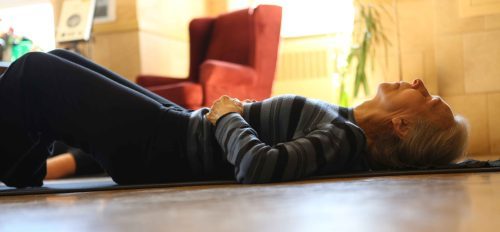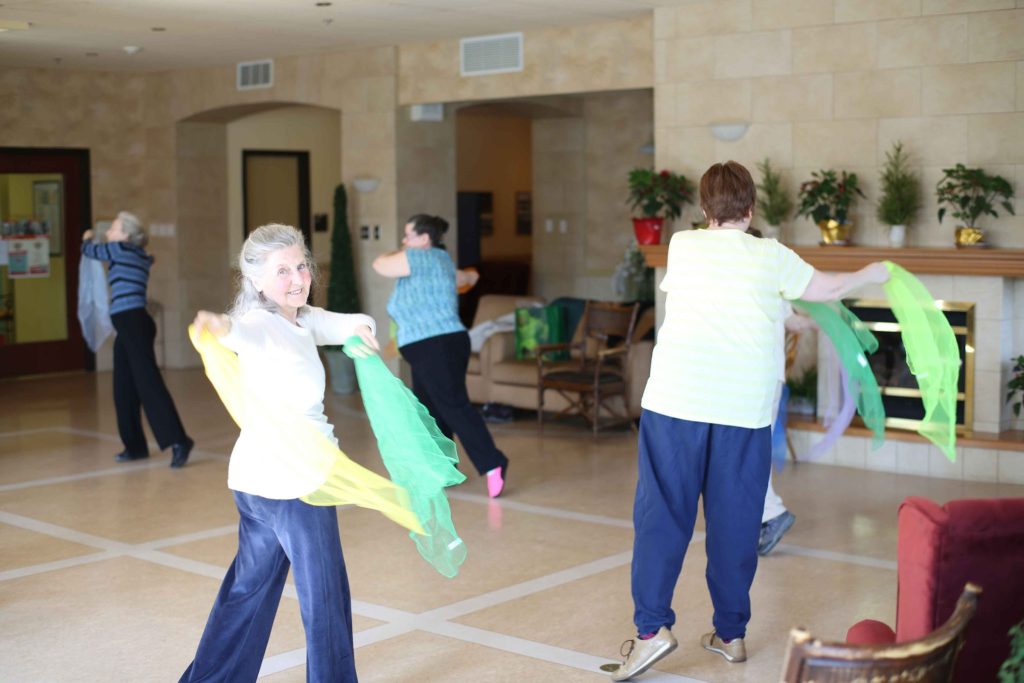Echoes from the field | Dancing in the older adult brain
Over the past decade, researchers have been publishing data on the benefits of physical activity on the brain as we age. We’ve learned that higher levels of physical activity lead to lower risks of developing cognitive decline and dementia, that greater levels of aerobic fitness and brain health seem to be strongly associated, and that other types of exercise like resistance and coordination training (as opposed to just cardio) can also improve cognitive abilities. But for many people the motivation to exercise is lacking. What about dance as a more enjoyable way for attenuating age-related decline? Does it have all the necessary components to do the trick?
A group of scientists, gerontologists, neuropsychologists, kinesiologists, dancers, dance movement therapists, and graduate students came together to try and answer those very questions in a scientifically rigorous manner. The way we did it was to compare the effects of Dance/Movement Training (DMT) to Aerobic Exercise Training (AET) on indicators of cognition, physical fitness and health-related quality of life measured before and after a 3-month training program. Sixty-two healthy individuals over 60 years old and who were not meeting the guidelines for engaging in a minimum of 150 minutes of moderate intensity exercise per week were randomly assigned either to an AET, a DMT or a control group (i.e., continuing their regular routine). Three times per week, the AET and DMT groups came to the research centre gym facilities and participated in their group’s physical activity for 60 minutes. Based on previous literature, the research team hypothesized that after 3 months:
- The DMT and AET groups would improve cognition,
- The DMT group would have the best improvement in health-related quality of life, and
- The AET group would have the best improvement in cardiovascular fitness.
It turns out only the third hypothesis was clearly confirmed, that is AET led to better cardiorespiratory fitness. But DMT had an important impact on chronic stress as indicated by a reduction in cortisol, the well-known stress hormones. This research project ended up guiding us to many more questions than answers. Here’s just a few of those questions:
- How do we name the key ingredients that make up a dance class?
- To what extent is the instructor’s teaching style impacting the experience?
- Are the standardized measurements currently used in research really measuring the right things for a dance class?
- How much dancing and at what intensity is needed to have an effect?
- Is the social component of partaking in a group dance class playing a role? In what way?
- How is the presence of music and/or the type of music used in the class impacting the experience?
- Can you standardize a dance class enough to evaluate it and reproduce it without losing what makes it special?
Dancing is much more complex than a variety of exercises thrown together. Research on the benefits of dance still has a long way to go but it is gaining in momentum and it is being conducted more and more with the expertise of interdisciplinary research teams. Funding agencies, health care providers, and policy makers are also starting to pay attention to the emerging field of dance and health as it has the potential to be an affordable, accessible, and attractive type of physical activity that can also be promising in promoting healthy aging. So, does dance have it all? You might already know the answer for yourself, but the science is still catching up!

Photo credit : Karine Kalfon
For the full research paper and related research see:
- Esmail, A., Vrinceanu, T., Lussier, M., Predovan, D., Berryman, N., Houle, J., Karelis, A., Grenier, S., Vu, T.T.M., Villalpando, J-M. & Bherer, L. (2020) Effects of Dance/Movement Training vs. Aerobic Exercise Training on cognition, physical fitness and quality of life in older adults: a randomized controlled trial. Journal of Bodywork and Movement Therapies. [Epub ahead of print]. 24:212-220.
- Vrinceanu, T., Esmail, A., Predovan, D., Berryman, N., Vu, T.T.M, Villalpando, J-M., Prussener, J & Bherer, L. (2019) Dance your stress away: Comparing the effect of Dance/Movement Training to Aerobic Exercise Training on the cortisol awakening response in healthy older adults. Stress. 22:6, 687-695.


